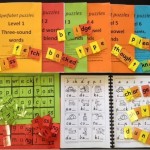Teacher knowledge of phonics
2 RepliesThe teachers I know say that they were not taught much about sounds, spellings, morphemes or other linguistic matters that are highly relevant to teaching reading while at university.
This problem applies in the US and around the English-speaking world, as literacy expert Dr Louisa Moats explains in this 160 second video:
Dr Moats is the author of a 40-page, 1999 online article called “Teaching Reading IS Rocket Science – What Expert Teachers of Reading Should Know and Be Able to Do”, which I think remains relevant and interesting.

The article points out that we now know that 95% of children can be taught to read, but there are still far too many struggling readers. It discusses why preventing reading failure has to be a top priority, how well teachers are prepared to teach reading, what preservice and inservice training teachers of reading need, and how she thinks the changes required can be made.
I’ll quote part of her Executive Summary here:
I won’t quote her further because I’m sure by now you just want to click here to download the full article.



[…] US literacy expert Dr Louisa Moats discusses why teachers aren't well-prepared to teach reading, and how to fix this, in a short video and downloadable article. […]
I’m so relieved to read about this as I am currently going through this with my 4 and half year old who is in the reception year at infant school and there is so much more structure than what we were expecting. the pressure to encourage them to recognise and pronounce letters and sounds is quite unreal for their age. lucky enough my little one thrives on it so does not effect her too much however some of her friends are struggling with the workload. The school is very helpful and supportive but feel that as parents a little crash course in pronouncing phonemes would be of great benefit. so I thank you for such an informative article and i will definitely be passing this round on the playground so to speak Felicity Terry recently posted..